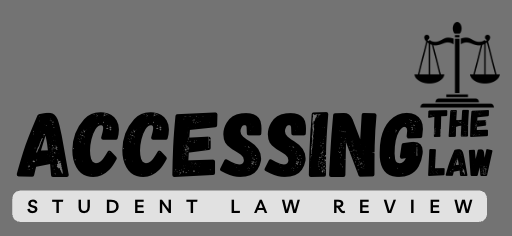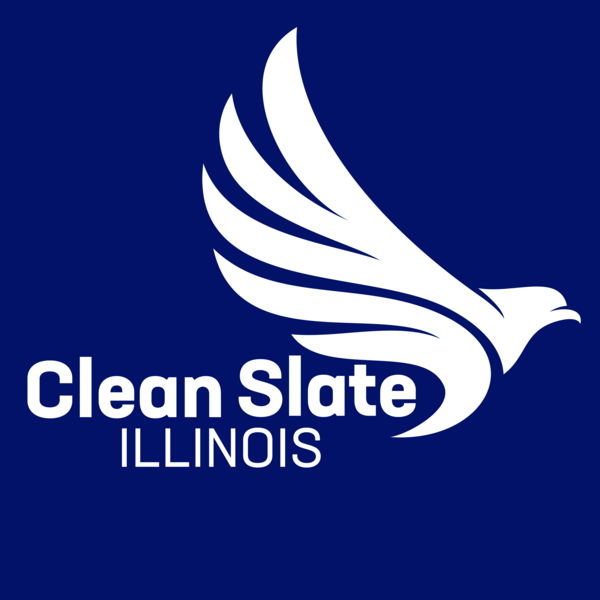Criminal Justice: The Clean Slate Act
Written by Diana Ascencio, Haley King, Karen Lopez, and Giovanni Hernandez
Edited by Diana Ascencio, Anna Ramesh, and Liv Moreno
What is The Clean Slate Act?
The Clean Slate Acts are a series of laws, currently enacted in 12 states, in which courts are obligated to seal criminal records pertaining to specific offenses, including: conviction for minor possession of a controlled substance, nonviolent possession of small amounts of marijuana, and an arrest that did not result in any conviction. An individual is eligible for this process if at least 3 years have passed since the conviction or release from jail for a misdemeanor, or 8 years since the conviction or release from prison for a felony. The individual must maintain a clean record during this waiting period and cannot be on parole or probation during that time. If the individual re-offends during the waiting period, they become ineligible to apply for a record seal.
Although many may find the Acts concerning, law enforcement and government agencies still have access to sealed criminal records. Individuals convicted or arrested for capital crimes like murder or rape are not eligible for record sealing under any circumstances. The process occurs over an extended period to allow the individual time to turn their life around, stay out of trouble, and show the courts that they can be a positive and active member of society.
The Clean Slate Acts were originally founded in New York in 2023 by a civilian organization, aiming to make formerly incarcerated individuals more appealing to employers, improve their lives outside of prison, and reduce recidivism rates. Records are automatically sealed, addressing the original barriers to this process that required manual petitions and bringing greater awareness to the law, as many people are unaware that such petitions exist. The automatic seal is hidden only from non-essential employers, such as those in fast food, retail, and grocery stores, where criminal records are generally not relevant for employment consideration.
History of The Clean Slate Act
Similar legislation to the Clean Slate Act has been introduced in various states across the nation. While no two laws are identical, exploring the historical context of laws before and after the Clean Slate Act helps us better understand the precedent for its passage.
The first example of similar legislation is a set of policies known as the Ban the Box laws. These laws remove questions about criminal history from job applications and allow background checks to be conducted later in the process. The legislation was passed in several states and local jurisdictions across the country. Hawaii was the first state to enact Ban the Box laws in 1998, with great success. In 2014, after extensive research, the American Journal of Criminal Justice found that removing these questions helped reduce the negative social stigmas placed on people with criminal records, thereby lowering recidivism rates, as people who had previously committed crimes out of necessity no longer had to resort to theft. Since Hawaii's success, 26 other states have implemented similar laws, each with its own minor differences. In Minnesota, for example, employers cannot inquire about criminal history until after an interview, while states like Massachusetts, Maryland, and New Hampshire prohibit asking about criminal history before an interview unless required by law.
Illinois has its own set of laws aimed at prohibiting discrimination based on criminal records. In March 2021, Governor Pritzker signed into law SB1480, expanding the Illinois Human Rights Act to limit discriminatory practices by employers against individuals with pre-existing criminal records. However, there are exceptions to this law. For example, if the individual's record contains offenses directly related to the job they are seeking, such as a firearms charge for a job that involves handling firearms, or if their criminal record suggests a potential risk to the public, the law may not apply.
A law similar to the Clean Slate Act is The Second Chance Act, also known as The Community Safety Through Recidivism Prevention Act. Signed into law by President Bush in 2007, it aimed to deter repeat offenders by providing support for their reentry into society, including housing and employment assistance, as well as programs for drug rehabilitation and mentoring.
While none of these laws directly mirror the Clean Slate Act, they share the common goal of helping formerly incarcerated individuals reintegrate into society and reducing the likelihood that they will reoffend.
Impact of The Clean Slate Act
The ICJIA also identified several barriers that impact employment for formerly incarcerated individuals, including employer stigma, restrictions on certain jobs (e.g., those involving money, alcohol, firearms, or visits from a parole officer), gaps in their resumes, and lack of work experience or training, especially if they were incarcerated at a young age. Whether due to prejudice or concerns about liability, formerly incarcerated individuals often find themselves stuck in minimum-wage or temporary positions long after being released. The lengthy and complicated rehabilitation process is difficult to convey in a short job interview.
The Clean Slate Acts make it easier for people with convictions to find stable employment by sealing their records when felonies are nonviolent. The prejudice employers often have toward applicants with criminal convictions creates significant barriers to finding employment. Integration is a key component of rehabilitation, and employment plays a vital role in this process. The successful implementation of "Ban the Box" laws in Hawaii, along with the decreased rates of recidivism, supports the argument that the Clean Slate Acts will bring about positive change in our legal system.
There are several programs successfully reintegrating formerly incarcerated individuals by addressing societal barriers: Root & Rebound, FreeWorld, Jumpstart Prison Ministry, Prison Fellowship Academy, Easy Expunctions, and The Frederick Douglass Project.
In conclusion, the Clean Slate Acts will bring much-needed change to the lives of formerly incarcerated individuals, helping them overcome barriers to reentry and supporting organizations that work to improve the lives of these individuals.
Works Cited
Allen Smith,. 2024. "Clean Slate Laws Are Spreading." Welcome to SHRM. March 25.
https://www.shrm.org/topics-tools/employment-law-compliance/clean-slate-laws-are-spreading.
"Ban The Box," November 11, 2024, https://www.ncsl.org/civil-and-criminal-justice/ban-the-box.
"Clean Slate Act | New York State Assembly," n.d., https://nyassembly.gov/cleanslate/?sec=what_it_does.
Collateral Consequences Resource Center, "50-State Comparison: Expungement, Sealing & Other Record
Relief | Collateral Consequences Resource Center," July 18, 2024, https://ccresourcecenter.org/state-restoration-profiles/50-state-comparisonjudicial-expungement-sealing-and-set-aside-2-2/.
Delgado, Aaron. "The Impact of Criminal Convictions on Employment Opportunities." ADA. Accessed
"H.R.1593 - 110th Congress (2007-2008): Second Chance Act of 2007," Congress.gov | Library of Congress,
n.d., https://www.congress.gov/bill/110th-congress/house-bill/1593.
"H.R.2864 - 117th Congress (2021-2022): Clean Slate Act of 2021," Congress.gov | Library of Congress, n.d.,
https://www.congress.gov/bill/117th-congress/house-bill/2864/text.
Jill Terreri Ramos, "New York State's Clean Slate Law Doesn't Keep Convictions Sealed From Everyone,"
Austin American-Statesman, January 3, 2024, https://www.statesman.com/story/news/politics/politifact/2024/01/03/new-york-clean-slate-law-violent-crimes-convictions-sealed-fact-check/72083707007/.
Lahdon, Tenzing. "From the Desk of Bja - November 2023: Justice Matters." Bureau of Justice Assistance,
November 27, 2023. https://bja.ojp.gov/news/justice-matters/desk-bja-november-2023
"Recognizing the Second Chance Act," n.d., https://www.bop.gov/resources/news/20240410-recognizing-
Reichert, Jessica, Ryan Maranville, and Eva Ott Hill. "Illinois Criminal Justice Information Authority ." ICJIA,
September 1, 2023. https://icjia.illinois.gov/researchhub/articles/employment-of-individuals-after-release-from-illinois-prisons--employee-characteristics-occupations-and-wages/#.
StandTogether. "6 Reentry Programs That Support a Successful Transition." 2024. Standtogether.org. 2024.
https://standtogether.org/stories/strong-safe-communities/reentry-programs-that-support-a-

